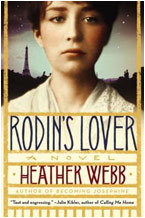It’s Wednesday and I’m delighted to welcome publishing lawyer and mystery author Susan Spann back to Between the Sheets. Today’s Ask #PubLaw post takes a look at the issue of parody vs. satire.
How about [use of] obvious satirical parody names like “Charbucks” or “Starburnt”?
The answer lies in the difference between parody and satire—because where publishing (and trademark) law is concerned, they’re very different creatures.
As a general rule, parody can be protected as fair use … but satire is not.
Non-protected, non-licensed use of trademarks or copyrighted materials constitutes infringement, even when the infringer’s intent was innocent. Use of copyrighted works or trademarks for criticism and comment sometimes qualifies as protected “fair use” under copyright law. Legal parodies must fall within the limitations of this fair use doctrine.
The “fair use doctrine” involves a non-exclusive four factor test which courts use to evaluate third-party use of copyrighted works. The factors include:
1. The purpose and character of the use (including without limitation commercial vs. non-profit nature)
2. The nature of the copyrighted work.
3. The amount and “substantiality” of the portion of the copyrighted work used (the more of the original you use, or the more identifiable it is, the more the use will look to a court like infringement). Note: use of a trademark, by definition, involves the actual mark itself (or something so close that the observer must recognize the original in the parody) so this factor almost always weighs against you in trademark satires.
4. The effect of the third-party use upon the potential market for or value of the original (copyrighted) work. With regard to trademark, this prong is often evaluated in terms of “will the parody diminish the market for the trademarked good” and if the answer is yes (or even a strong maybe) a finding of infringement and wrongful use is likely.
Courts evaluate each factor on a case-by-case basis, and weigh some facts and factors more heavily than others, which makes fair use difficult to determine in advance and almost impossible to determine in hypothetical situations.
A properly constructed parody may qualify as fair use. By definition, “parody” of a copyrighted work or a trademark involves modifying the original work in order to poke fun at the work (or trademark) itself.
But while parody makes fun of the original work itself, satire uses modification of a work to make fun of or comment on something else – a topic different from the original work. For example, rewriting a Dr. Seuss book to make fun of a politician constitutes satire, not parody.
Some parodies have satiric components, and some satires do include elements of parody. But from a legal perspective, it’s far easier to justify use of a copyrighted work for parody than for satire. If you’re writing parody or satire, it’s critical to make sure your work qualifies as fair use before publication. Otherwise, you could end up legally liable.
When it comes to clearly satirical trademarks, my tendency is to say “be very careful.” If you mean Starbucks, it’s generally better just to say so. If you want “something like Starbucks but not because I don’t want to bring legal liability on myself since I’m poisoning the lattes” I recommend just making up a fictitious company altogether. That’s erring on the side of safety, but with the average cost of attorney fees for a copyright or trademark infringement lawsuit in excess of $50,000 (per party, and that’s assuming you win) safety is generally the least expensive and most advisable option.
Thank you to Heather for letting me to post Ask #PubLaw here today!
Remember: if you leave a comment on this, or any Ask #PubLaw post during June 2013, you’ll be entered in a drawing to win a signed ARC of my upcoming mystery novel, CLAWS OF THE CAT!
[And the contest legalese-sorry, can’t help it, I’m a lawyer: One entry per household per week. Total of one prize will be awarded, by random drawing, from all eligible comments across all Ask #PubLaw posts in the month of June 2013. Contest ends at midnight Pacific Time, June 30, 2013. Open to residents of the U.S. and Canada only. Odds of winning vary. No purchase necessary. Void where prohibited by law.
Ask your publishing questions in the comments (questions on all publishing and intellectual property issues are welcome!). I’ll be delighted to answer them in future Ask #PubLaw posts!
ABOUT SUSAN SPANN
Susan is a publishing attorney and historical mystery author. Her debut novel CLAWS OF THE CAT (Minotaur) releases July 16, 2013. When not writing or representing clients, Susan enjoys traditional archery, martial arts, horseback riding, online gaming, and raising seahorses and rare corals in her highly distracting marine aquarium. She still consumes books – almost as avidly as spicy Thai dinners. Susan lives in Sacramento with her husband, son, three cats, one bird, and a multitude of assorted aquatic creatures. She is a member of Mystery Writers of America, the Historical Novel Society and the Rocky Mountain Fiction Writers’ Association and is represented by literary agent Sandra Bond of Bond Literary Agency.
5 Comments
Join the conversation and post a comment.















Um, I’m glad Susan’s on top of this stuff because it seems hard. I will try to write earnestly so that I don’t have to worry about the difference between satire and parody.
Seriously. I wouldn’t have the first clue where to start. I definitely love my resident pub lawyer!
aww, you guys are great. I’m glad I’m able to help!
As always–relevant and so interesting! Thank you Susan and Heather.
Thanks, Denise!